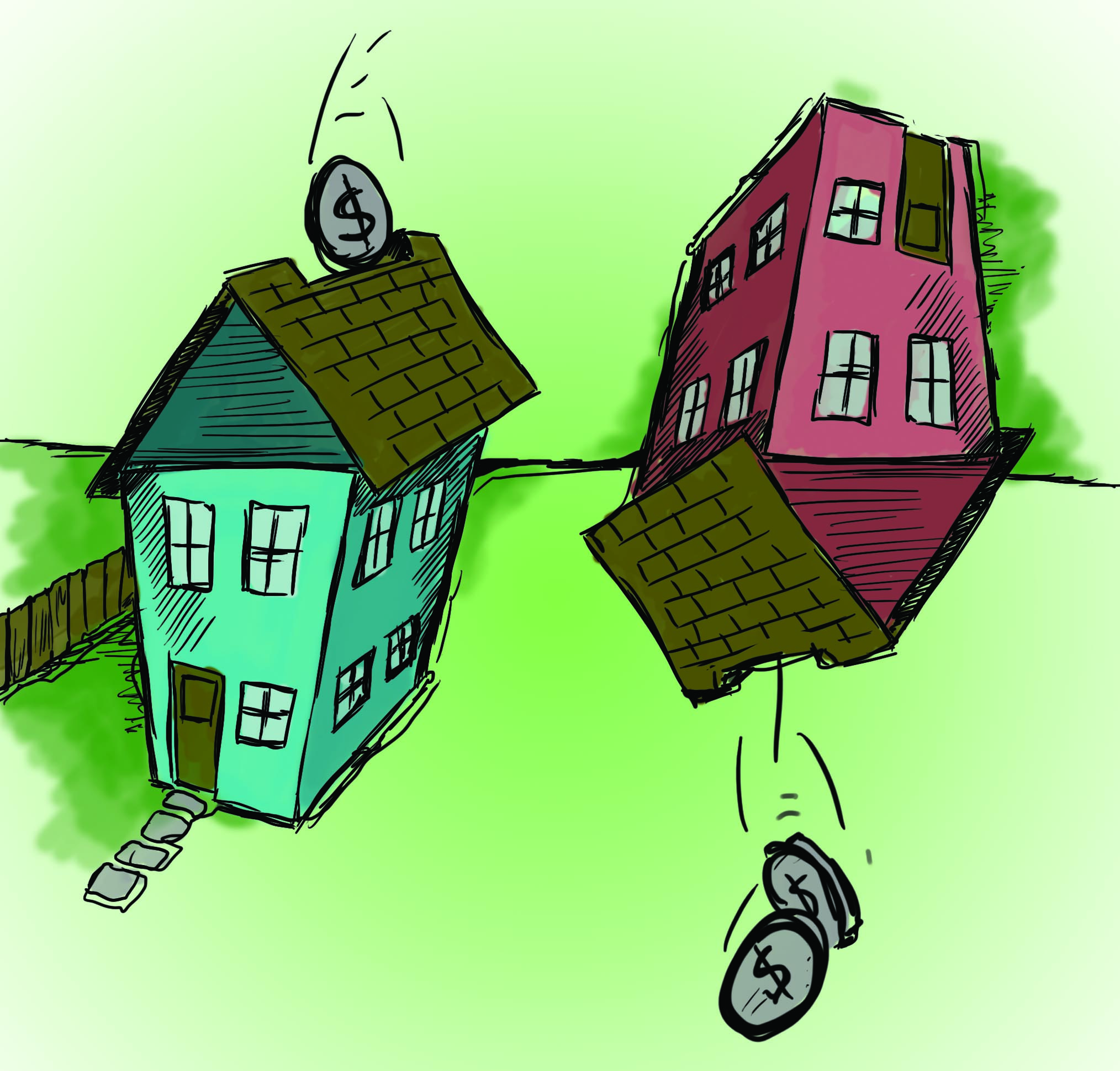Home ownership is often considered the “American Dream,” or Canadian in this instance. I’ve been told tales of homes rising in value from $45,000 in 1973 to $480,000 just this year. While these numbers may not be completely representative of the market, it was a friend of my parents who told me I could make a lot of money owning my home. The reasoning behind this is strong: who wouldn’t love an asset that consistently grows your portfolio? But these numbers don’t show all the facts.
In the late 70s, interest rates were on the climb, moving from around six per cent in 1973 up to over 13 per cent in 1979, and hovered around the 10 per cent mark for the 80s. This makes the cost of borrowing $45,000 a much larger burden than it would be today; the payment would be almost $500 without adjusting for inflation. Over the lifetime of that mortgage the total amount paid would be more in the range of $120,000 to as much as $180,000, though I can’t state for certain since credit ratings, interest rates, and interest terms can all vary.
But what about the money you spent on the kitchen, or the new shingles and windows? In reality, the lifecycle cost of owning a home is much higher than the actual amount of the mortgage, which is just a small piece of the big picture.
Even with the numbers above, some people will still believe they made a good investment choice in deciding to own their home; for some, a good investment choice in the past means the same choice will continue to be a good investment in the future. When not even looking at the “housing bubble” in the U.S. where prices dropped seemingly overnight, it is still clear that housing is not as good an investment as one might believe.
For theoretical purposes, we will say two people both have $2,000 a month to spend on housing and $35,000 saved for a down payment. They put any extra money they do not spend on housing into an account that returns 4.25 per cent per year. Person A decides to buy a $300,000 home, while Person B decides to rent a similar house in a similar neighbourhood. Let’s look at the numbers:
Person A takes their down payment and puts it toward a mortgage for the home; they decide to put $30,000 towards the mortgage, get a $270,000 mortgage over 30 years, and their negotiated interest rate is 3.89 per cent. The other $5,000 goes towards various closing costs (mostly the lawyer and land transfer taxes). Person A now “owns” their home. Aside from the $1,300 monthly, Person A will be paying for their mortgage; they will also be paying between $560 and $790 a month on maintenance and property tax, depending on the age of their house – we’ll say $600 for simplicity, with a total of $1,900 a month, leaving $100 for savings.
Person B, on the other hand, decides to rent a house in a similar area, and ends up paying $1,600 per month for housing. They put down two months of rent as a security deposit and still have $29,800 in savings, which goes into the interest-bearing account. In addition to this, they have an extra $400 per month to add to this account.
The main argument I hear when people tell me my numbers are over-simplistic is that the value of the house will rise and rent prices can go up. While this is true, the same can be said for interest rates. To understand how this might change things, a one per cent increase in the mortgage lending rate would translate into an extra $150 per month. The renter would be at the mercy of the landlord, whereas the buyer would be at the mercy of the Bank of Canada. I also intentionally left the return on the savings rather low – it’s not uncommon to see a return of six to eight per cent on the TSX index.
What people fail to realize in all this is the freedom that renting gives. When the rent prices get to be too much of a burden, you can move. Renting a house and saving your money produces completely liquid assets. But when you try to get the equity out of the house that you own, you can take a loan out against the value of the house and pay interest, or you can sell your house and pay closing costs; both of these cost the owner additional funds and creates much less flexibility when it comes to where you live. This brings me to my last point: upgrading.
When you are renting and you want to move into a bigger place, you just terminate the lease and find a new place – a small hassle. But when you want to upgrade while owning, you have to sell your current place and find a new place concurrently.
While the hassle of selling and buying alone is enough for me to want to avoid the process, the fixed costs associated with home ownership can add an extra burden that some simply cannot handle.

